Search
 Document
Document
Oral Dysplasia Program
Oral dysplasia patients at UCSF benefit from an internationally recognized team of multidisciplinary experts with the highest level of expertise in this difficult-to-manage and often unpredictable disease.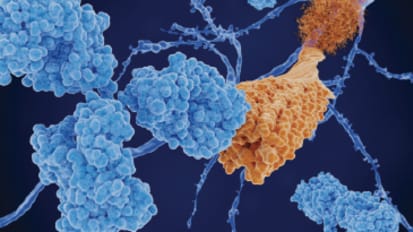 Document
Document
Cancer Immunotherapy Toxicity Evaluation (CITE) Program
UCSF Health’s new Cancer Immunotherapy Toxicity Evaluation (CITE) Program is a valuable resource for both patient care and provider consults.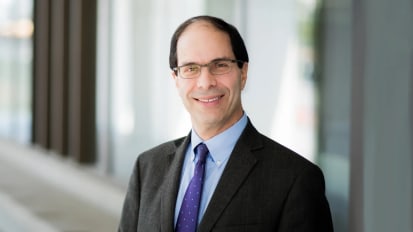 News
News
UCSF Health’s Eric Small, MD, Elected ASCO President for 2025-2026 Term
The American Society of Clinical Oncology (ASCO) has elected Eric J. Small, MD, FASCO, to serve as its president for the term beginning in June 2025.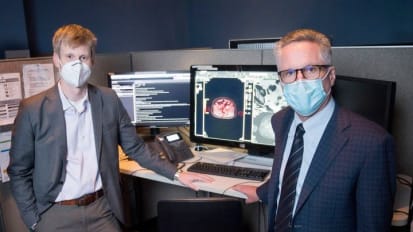 News
News
UCSF Researchers Help Gain FDA Approval for Prostate Cancer Imaging Technique
Method is a ‘game changer’ that should become the standard of care, say UCSF researchers who validated its effectiveness.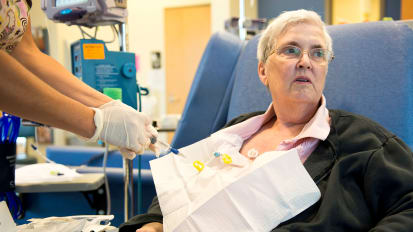 News
News
Novel Hyperglycemia Management Protocol for Patients Undergoing Cancer Treatment
An innovative hyperglycemia management protocol for patients receiving cancer therapy is provided through an urgent-care site within the UCSF Infusion Center, and can be replicated at other centers. The protocol ensures that patients promptly get the necessary treatment for acute hyperglycemia that can occur during cancer therapy.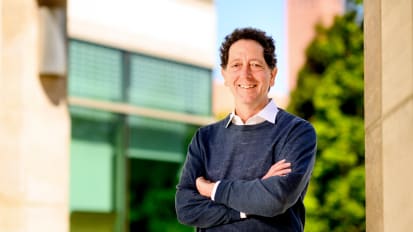 News
News
UCSF Researchers Uncover New Pathway for Molecular Cancer Drug Therapies
In a study published December 8, 2022 in Science, UCSF researchers Kevin Lou, an MD-PhD student, Luke Gilbert, PhD, and Kevan Shokat, PhD, reveal the discovery of a cellular uptake pathway important for larger molecules. News
News
“CAR Pooling” Screens Identify Most Effective Cancer Immunotherapy Cells
New approach by UCSF researchers analyzes how well different re-engineered T cells work against cancer. News
News
Scientists Discover a Deadly Brain Cancer’s Hidden Weakness
The difficult-to-treat brain cancer glioblastoma steals a person’s mental faculties as it spreads, yet the tumor’s insidious ability to infiltrate distant networks in the brain could also prove its undoing.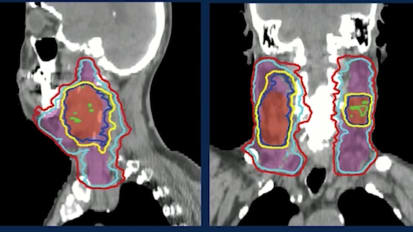 Video
Video
Salivary Gland Transfer for Head & Neck Cancer Patients
Discover the surprising way a simple surgery can vastly improve quality of life for head and neck cancer patients after radiation treatment. How? By moving the submandibular gland out of the way of the most intense radiation to prevent xerostomia.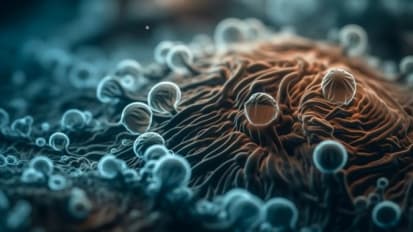 Video
Video
New Keys to Cancer Care: How 2023 Findings Impact Treatment Decisions
These four collaborative talks from UCSF and John Muir Health specialists shine a light on recent study results that should inform treatment planning for patients with a variety of GI, breast, lung and blood cancers. News
News
Improving Management and Treatment of Thyroid Cancer
UCSF’s Julie Ann Sosa, MD, co-led an international task force establishing new clinical guidelines for the management of differentiated thyroid cancer. News
News
‘Every Time I Relapsed, There Would Be a New Course of Therapy’
He was told cancer would kill him in two to four years. Fourteen years later, he credits a series of medications and treatments funded by the National Institutes of Health. News
News
How a Tumor Marker for Ovarian Cancer May Help Treat the Deadliest Bladder Cancers
Bladder tumors that have been excluded from clinical trials have a few things in common that could lead to new therapies. News
News
UCSF Urology Clinicians Present Research Findings at SurgeWest
This year’s program featured innovative research and discussions by experts from the UCSF Department of Urology. News
News
UCSF Study Finds a Better Way to Screen for Breast Cancer
A pioneering study has found that an individualized approach to breast cancer screening that assesses patients’ risk, rather than automatically giving annual mammograms, can lower the chance of more advanced cancers, while still safely matching people to the amount of screening they need. News
News
Abortion Ban May Increase Risk of Death for Pregnant Women with Cancer
The repercussions of overturning Roe v. Wade – and the failure of the Supreme Court to provide any guidance on exceptions related to the life and health of the mother – are potentially catastrophic for a subset of women who face a life-threating diagnosis of pregnancy associated cancers (PAC). News
News
Precision Breast Cancer Trial Shows Improved Treatment by Tumor Subtype
Despite recent advances in the treatment of breast cancer, it remains the second leading cause of cancer death in the U.S. and worldwide. News
News
UCSF at the Forefront of New Therapies, Giving Hope to Multiple Myeloma Patients
Over the past few decades, advances in the treatment of multiple myeloma (MM) have accelerated at a thrilling pace, with a wealth of new therapeutic options now available for patients with this serious disease. News
News
Bladder Cancer Home Test Reduced Need for Cystoscopy During COVID-19
A study led by UCSF urologic cancer surgeons Sima Porten, MD, MPH, and Maxwell Meng, MD, found that use of a home urine test during the COVID-19 pandemic decreased the frequency of surveillance cystoscopy for patients with a history of non-muscle invasive bladder cancer (NMIBC). Document
Document
Head and Neck Surgical Oncology
Expert care to improve both survival and quality of life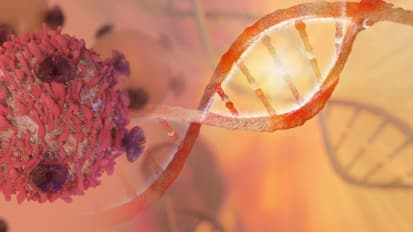 Video
Video
Updates from the American Society of Clinical Oncology (ASCO) 2017
A June 2017 Bay Area Breast Cancer Forum discussion of updates from the ASCO annual meeting, covering PARP inhibitors, germline BRCA mutations, HER2-positive cancer, patient-reported outcomes, immunotherapy and more. Moderator: Dr. Hope Rugo News
News
Can a New Drug Candidate Cure Pancreatic Cancer?
UC San Francisco researchers have designed a candidate drug that could help make pancreatic cancer, which is almost always fatal, a treatable, perhaps even curable, condition. News
News
How This Cancer Drug Could Make Radiation a Slam Dunk Therapy
UCSF scientists combine a precision drug therapy with an antibody and radiation to eliminate tumors without causing side effects. News
News
International Hematologic Conference Features UCSF Health Experts
Hematologists and oncologists from around the world will present new research and clinical findings at the American Society of Hematology’s (ASH) 64th Annual Meeting and Exposition.

